Judiciary has advanced rights but failed in politically sensitive cases—Prof. Ssempebwa
Prof. Frederick Ssempebwa, a member of the 1995 Constitutional Commission and later chairperson of the Constitutional Review Commission, says the Judiciary has made important contributions to protecting constitutional rights, but has failed to safeguard the rights of certain individuals.
Prof. Frederick Ssempebwa addressing guests, participants and officials from Makerere University during the World Philosophy Day celebrations held at Makerere University Main Hall. (Photo by John Odyek)
__________________
Legal scholars, former ministers and constitutional actors have given a mixed assessment of Uganda’s judiciary and the state of constitutionalism, saying while notable progress has been made, serious setbacks remain, especially in politically sensitive cases.
Prof. Frederick Ssempebwa, a member of the 1995 Constitutional Commission and later chairperson of the Constitutional Review Commission, says the Judiciary has made important contributions to protecting constitutional rights, but has failed to safeguard the rights of certain individuals.
Speaking during a panel discussion at the World Philosophy Day celebrations held on November 19, 2025, at Makerere University in Kampala city, Ssempebwa said criticism of the Judiciary is justified when it falters, but its positive contributions should also be recognised.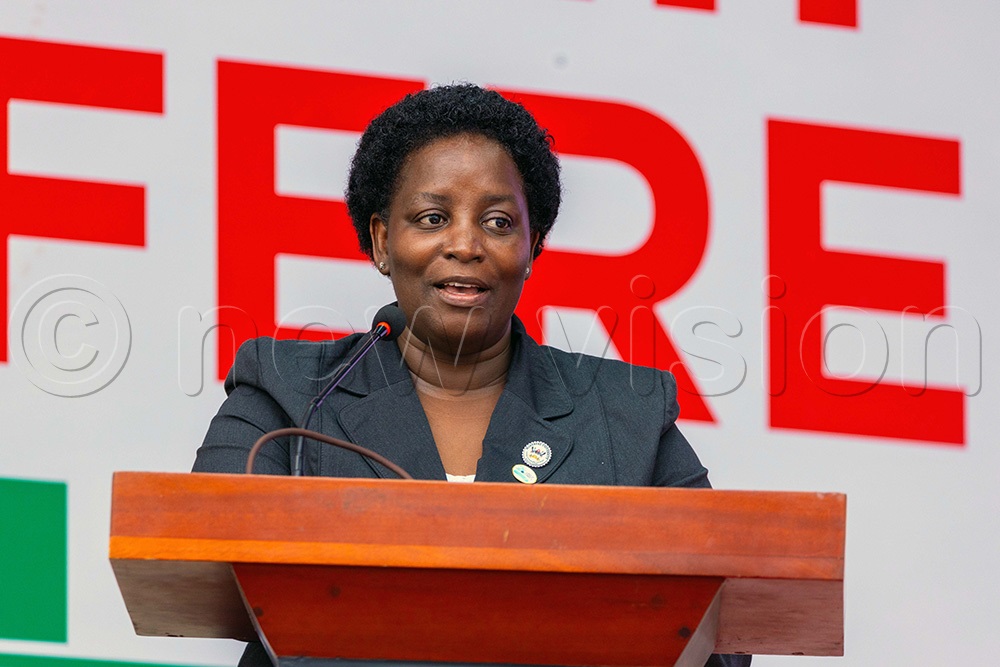
Nambalirwa Nkabala welcoming guests, participants and officials from Makerere University during the World Philosophy Day celebrations held at Makerere University Main Hall. (Photo by John Odyek)
“As members of the Uganda Law Society, we have had serious battles with the Judiciary and have castigated it on several occasions,” he said.
“But it is also important to acknowledge instances where the courts have upheld civil and political rights. Recently, there has been progress in advancing socio-economic rights and dispelling the myth that resource allocation is purely an Executive matter.”
However, Ssempebwa noted that the courts tend to be inactive or even appear to “assist unfair imprisonment” in political cases where powerful actors want individuals detained before trial.
“This is not consistent with the constitutional development we expected,” he said.
He added that Uganda’s biggest challenge remains governance: “The Constitution has not been observed. We have gone astray in many ways.”
Constitution must be respected
Justice and constitutional affairs Minister Norbert Mao said government leaders must meet the expectations of citizens, adding that if they fail in their responsibilities, “they would deserve the hottest parts of Hell.”
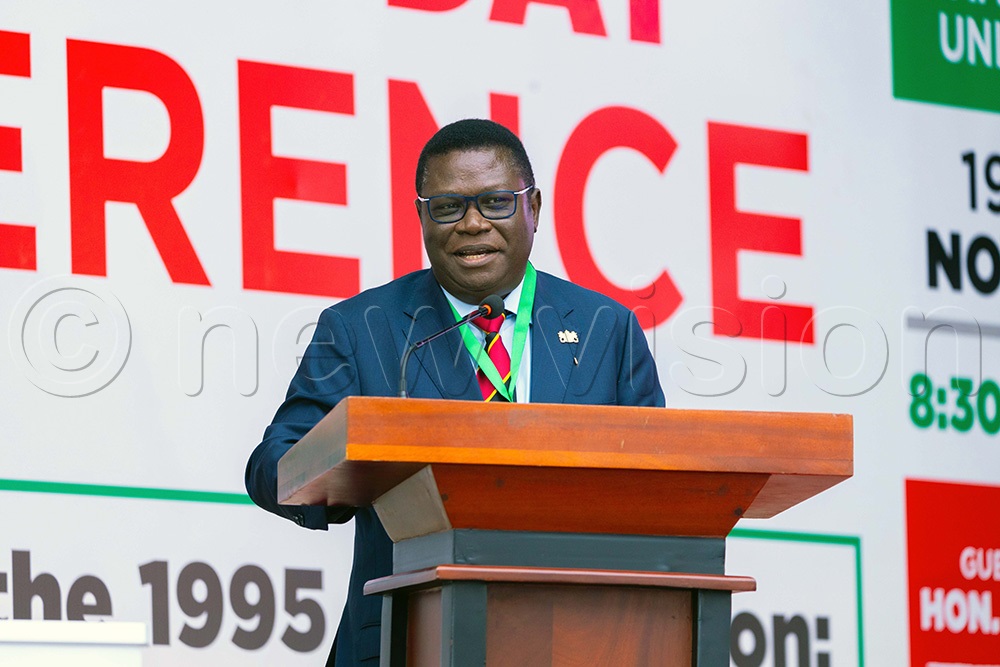
Justice and constitutional affairs minister Norbert Mao addressing guests, participants and officials from Makerere University during the World Philosophy Day celebrations held at Makerere University Main Hall. (Photo by John Odyek)
Mao described the Constitution as a contract that must be honoured by all parties and reminded participants that it was drafted by a strong, representative group.
Mao said Ugandan society continues to perceive the army as the final arbiter of justice, peace and stability a trend he described as unhealthy for democracy.
“Uganda has never witnessed a peaceful transition of power without bloodshed,” he said. He added that although the 1995 Constitution did not satisfy everyone, citizens must agree to abide by it rather than undermine it.
Mao criticised arguments that dismiss democracy in favour of “strongman rule,” saying such views weaken constitutionalism. He rejected accusations that he is creating an elite political circle through the Interparty Organisation for Dialogue (IPOD).
Voices from the Constituent Assembly
Former ministers Loice Biira Bwambale and Hope Mwesige, both members of the 1994 Constituent Assembly, reflected on the aspirations that shaped the Constitution.
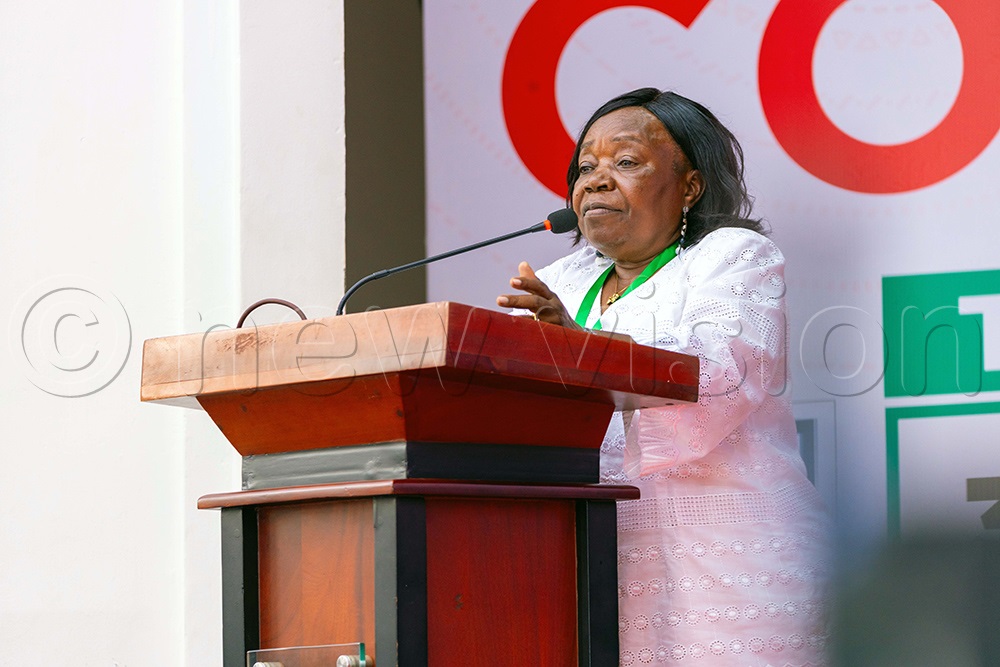
Former minister Loice Biira Bwambale talking to guests, participants and officials from Makerere University during the World Philosophy Day celebrations held at Makerere University Main Hall. (Photo by John Odyek)
Bwambale, who represented Kasese, said the Constitution was a major victory for women and marginalised groups who had previously been excluded from politics. She championed the inclusion of human rights provisions and land issues, which she described as critical for communities like Kasese.
“We felt this Constitution could be owned and defended,” she said. “Coming from a community that suffered conflict and violations of rights, having a Bill of Rights was a huge gain.”
Mwesige recalled past abuses, including dress-code restrictions under Idi Amin and public executions, which motivated efforts to entrench women’s rights and set a 30% representation threshold.
However, she expressed disappointment with the current state of governance.
“Our Constitution is excellent on paper, but the spirit is weak,” she said. “Institutions have been systematically undermined. There is no separation of powers. Human rights violations are widespread, and corruption has become normalised.”
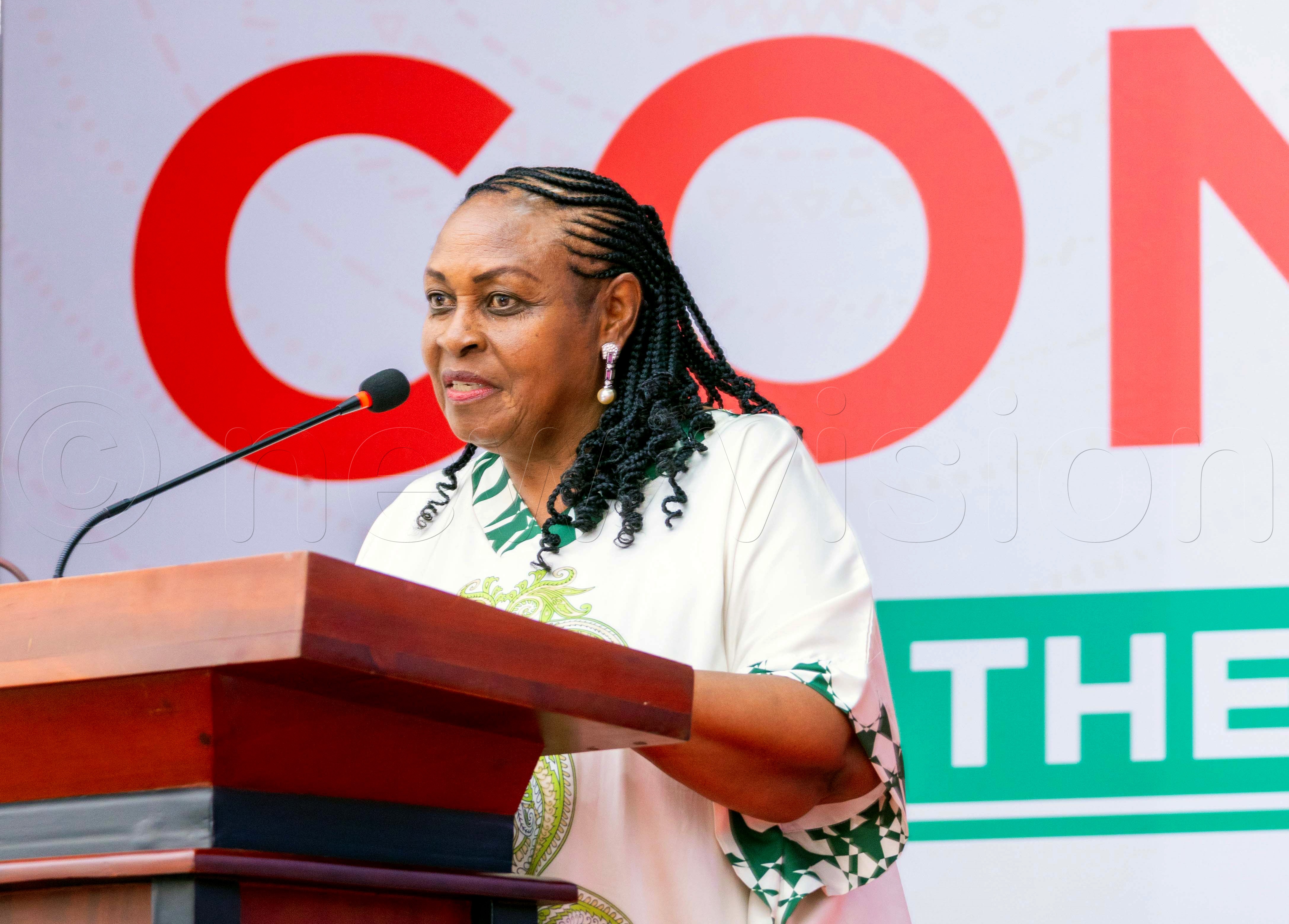
Hope Mwesige speaking to guests, participants and officials from Makerere University during the World Philosophy Day celebrations held at Makerere University Main Hall. (Photo by John Odyek)
A founding member of the NRM, Mwesige criticised the concentration of power within the party, saying key positions that were meant to be elective are now appointed by a single individual. She apologised for her role in the removal of presidential term limits.
“We believed that with multiparty politics, parties would grow strong and regularly replace leaders. In a way, we were duped, and I take responsibility,” she said.
Constitutional journey
Makerere University vice-chancellor Prof. Barnabas Nawangwe said the institution has a proud history of contributing to Uganda’s constitutional journey.
“Several of our academics played direct roles in drafting the 1995 Constitution, including the late Dan Mudoola, Mwambusya, Prof. Ndebesa, and Dr James Kigongo. Their work stands as a testament to the central role this university plays in national development and political thought,” he said.
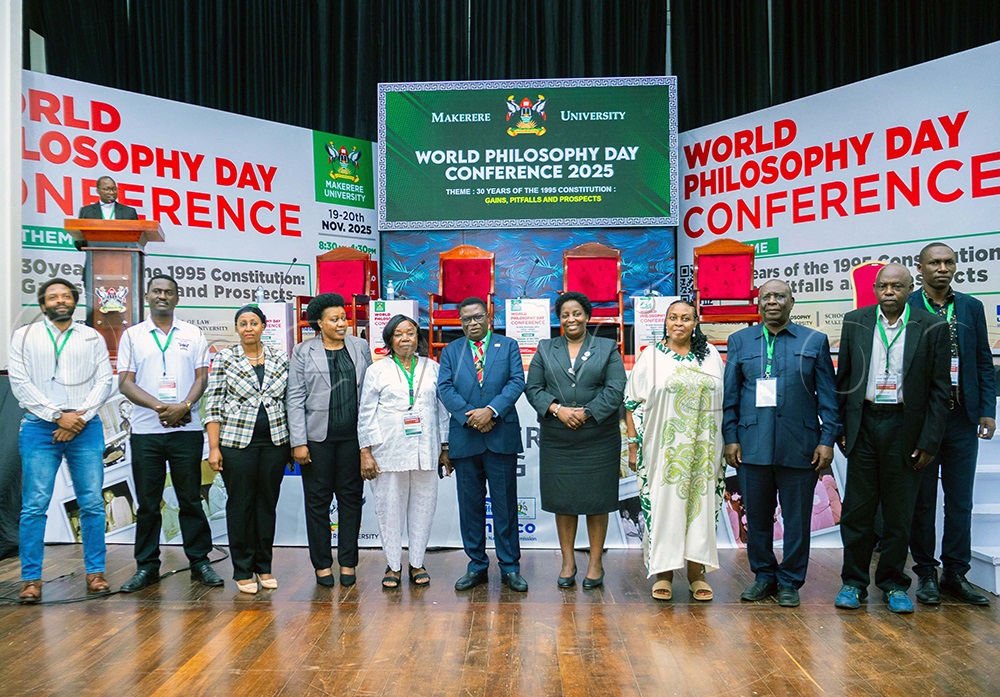
Justice and constitutional affairs minister Norbert Mao (centre) with guests and officials from Makerere University during the World Philosophy Day celebrations held at Makerere University Main Hall. (Photo by John Odyek)
His remarks were delivered by Assoc. Prof. Helen Nambalirwa Nkabala, the principal of the College of Humanities and Social Sciences.
Nawangwe noted that Makerere continues this legacy through the Department of Philosophy, where scholars teach and conduct research in human rights, ethics, political philosophy, and governance. He added that the School of Law remains a key pillar in training legal minds through courses such as Constitutional Law, shaping the human resource that drives Uganda’s governance and political processes.
“It is, therefore, gratifying to see the multidisciplinary nature of this conference, bringing together constitutional drafters, philosophers, political scientists, legal scholars, creatives, and the wider public,” he said.
“Such collaboration enriches debate and opens new ways of understanding our shared national aspirations. Let us use this conference to envision a future where constitutionalism, human rights, and democratic governance flourish,” Nawngwe said.